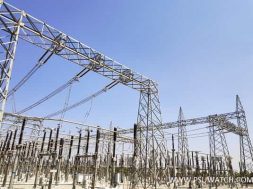
The revision in feed-in tariff rates and the imposition of installation caps for solar power projects by the Chinese government is expected to negatively affect the demand for solar power modules in China.
New Delhi: Reduction in incentives for solar power projects in China is likely to benefit Indian solar Independent Power Producers (IPPs) through softer module prices, according to research and rating agency ICRA.
The revision in feed-in tariff rates and the imposition of installation caps for solar power projects by the Chinese government is expected to negatively affect the demand for solar power modules in China. It has imposed a cap of 10 Gigawatt (Gw) for new distributed generation solar power projects based on feed-in tariff in 2018, against 19 Gw installed in 2017. China has also removed the capacity target for utility scale projects and stated no new utility scale projects should be awarded on feed-in tariff basis.
“The policy changes in China are likely to impact the domestic demand for solar PV modules and consequently result in a softening of export prices for Chinese PV module manufacturers. This is likely to result in lower equipment costs for Indian developers or IPPs. On the other hand, the aforesaid softening in the module price levels internationally is likely to be a negative for domestic module and cell manufacturers due to increase in competitive pressures through imports,” said Sabyasachi Majumdar, Senior Vice President & Group Head, ICRA Ratings.
Of the total 5.5 GW solar power capacity that has been bid out during 2018, as much as 2.9 Gw has been bid at tariffs equal to or lower than Rs 3.0 per unit.
Majumdar said the developers have submitted bids based on expectations of fall in imported module prices and availability of land and evacuation infrastructure for projects in solar parks. However, risks have accentuated because of the unexpected reversal in the trend of falling module prices with prices rising from about 30 cents per watt in May 2017 to about 36 cents per watt in August 2017 and remaining in this range till date, besides factors like the rising interest rates and the steep depreciation of the Indian Rupee in recent months.
“Any material reduction in module prices from the current levels would improve the viability of these projects. An 8 cent per watt decrease in the PV module price is estimated to lower the capital cost by about 13 per cent, which in turn is estimated to result in an improvement in cumulative debt service coverage ratio (DSCR) by 0.15 times for a solar power project with tariff of Rs 2.5 per unit,” ICRA said in a statement..
The estimate is based on an assumption of debt-to-equity ratio of 70:30, Rupee-Dollar exchange rate of 67, cost of debt at 9.5 per cent post commissioning with debt repayment tenure of 18 years and plant load factor (PLF) level of 24 per cent. The agency said the recent trend in Rupee depreciation against the Dollar will partially offset the benefit of module price reduction for the solar IPPs in India.













